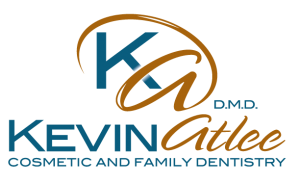Services
Dr. Kevin Atlee, DMD is highly skilled in all phases of dentistry. Please take a moment to look over the services that we offer to find out how Dr. Atlee’s team can help you with any of your dental needs.
Tooth Whitening
If you’ve had your teeth whitened in the past and are not satisfied with the results, we can help! I’ve used every whitening system out there, mostly with mixed or bad results. Then I learned about the KöR Whitening Deep Bleaching™ System. Since incorporating this system, we have been seeing CONSISTENTLY great results, with little or no sensitivity.
Invisalign (Preferred Provider)
Invisalign® takes a modern approach to straightening teeth, using a custom-made series of aligners created for you and only you. These aligner trays are made of smooth, comfortable and virtually invisible plastic that you wear over your teeth. Wearing the aligners will gradually and gently shift your teeth into place, based on the exact movements your dentist or orthodontist plans out for you. There are no metal brackets to attach and no wires to tighten. You just pop in a new set of aligners approximately every two weeks, until your treatment is complete. You’ll achieve a great smile with little interference in your daily life. The best part about the whole process is that most people won’t even know you’re straightening your teeth.
Dentures
A denture is a removable replacement for missing teeth and adjacent tissues. It is made of acrylic resin, sometimes in combination with various metals. Complete dentures replace all the teeth, while a partial denture fills in the spaces created by missing teeth and prevents other teeth from changing position. Complete dentures are either “conventional” or “immediate.” A conventional denture is placed in the mouth about a month after all the teeth are removed to allow for proper healing, whereas an immediate denture is placed as soon as the teeth are removed. The drawback behind an immediate denture is that it may require more adjustments after the healing has taken place.
Crowns
A crown is a type of dental restoration which completely caps or encircles a tooth or dental implant. Crowns are often needed when a large cavity threatens the ongoing health of a tooth. They are typically bonded to the tooth using a dental cement. Crowns can be made from many materials, which are usually fabricated using indirect methods. Crowns are often used to improve the strength or appearance of teeth. Our Crowns are done in house with a minimal wait.
Oral Surgery
A dental implant is a surgical component that interfaces with the bone of the jaw or skull to support a dental prosthesis such as a crown, bridge, denture, facial prosthesis or to act as an orthodontic anchor. The basis for modern dental implants is a biologic process called osseointegration where materials, such as titanium, form an intimate bond to bone. The implant fixture is first placed, so that it is likely to osseointegrate, then a dental prosthetic is added. A variable amount of healing time is required for osseointegration before either the dental prosthetic (a tooth, bridge or denture) is attached to the implant or an abutment is placed which will hold a dental prosthetic.
Dental Implants (Surgical & Restoration)
A dental implant (also known as an endosseous implant or fixture) is a surgical component that interfaces with the bone of the jaw or skull to support a dental prosthesis such as a crown, bridge, denture, facial prosthesis or to act as an orthodontic anchor. The basis for modern dental implants is a biologic process called osseointegration where materials, such as titanium, form an intimate bond to bone. The implant fixture is first placed, so that it is likely to osseointegrate, then a dental prosthetic is added. A variable amount of healing time is required for osseointegration before either the dental prosthetic (a tooth, bridge or denture) is attached to the implant or an abutment is placed which will hold a dental prosthetic.
Composite Fillings
Resin composite fillings are made of ceramic and plastic compounds. Because resins mimic the appearance of natural teeth, these fillings have been used in front teeth for years. When they first appeared, however, resin compounds weren’t strong enough to be used in back teeth, where high-pressure grinding and chewing require greater durability.
Root Canals
Root Canal therapy is a sequence of treatments for the infected pulp of a tooth which results in the elimination of infection and the protection of the decontaminated tooth from future microbial invasion. Root canals and their associated pulp chamber are the physical hollows within a tooth that are naturally inhabited by nerve tissue, blood vessels and other cellular entities which together constitute the dental pulp. Endodontic therapy involves the removal of these structures, the subsequent shaping, cleaning, and decontamination of the hollows with small files and irrigating solutions, and the obturation (filling) of the decontaminated canals with an inert filling such as gutta-percha and typically a eugenol-based cement. Epoxy resin is employed to bind gutta-percha in some root canal procedures.


